
Fighting the Martina Decree: We won the first battle!
Italy’s former government promulgated a decree introducing some very dangerous pesticides in February 2018.
The goal was fighting an illness of olive trees called Xylella in the southern region of Puglia. Two of the pesticides — Imidacloprid and Acetamiprid — are potentially mutagenic and constitute a serious threat for human health, the quality of soil, water, and bees. This is why they had previously been either prohibited or heavily regulated by EU legislation.
At DiEM25, we were confident that the Martina decree was illegal — and that’s what we wrote in our formal complaint to the European Commission on Monday morning.
Today, the Commission informally stated that we were perfectly right.
The Italian press agency ANSA writes: “as a spokesperson of the EU Commission underlines, after a complaint was submitted by the political movement of Yanis Varoufakis, DiEM25, and the NGO The Good Lobby, the Commission is aware of the fact that in the ministerial decree the Imidacloprid is listed among substances that could be used against the carrier insect. However, this use would require first of all a specific authorisation from the Italian authorities, which has not yet been issued: therefore its use is prohibited. There is also an obligation for the Italian authorities to notify the measure to the Commission”.
This is exactly what our complaint was about.
We obtained a first, very important victory today: but this is only the first battle and, together with the NGOs that have been fighting for years, together with our local activists, and with disobedient farmers and mayors, we must go and win the war now.
- We demand the new Italian government to immediately modify or withdraw the Martina decree. The risk, in the event that the Government decides not to do so, would be to run into the umpteenth EU infringement procedure.
- We demand the European Commission stand its ground to protect the fundamental right to health of Puglia’s women and men.
- We demand all stakeholders, farmers, mayors, NGOs and citizens to extend the constructive disobedience to an illegal decree and to refuse to apply it.
Let’s go all the way — with our head in Brussels and our feet in the territories.
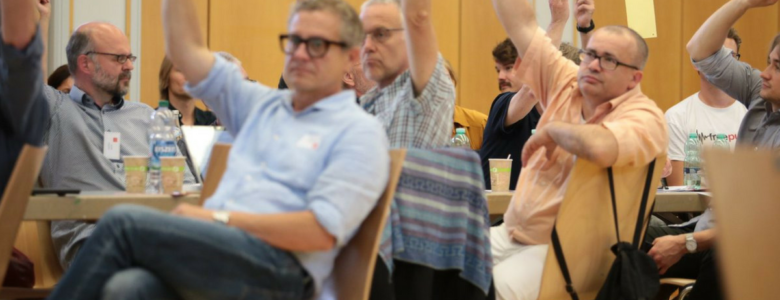
It is official: DiEM25 has an electoral wing in Germany
On Saturday, 2 June, 70 members from all over Germany came together in Frankfurt to found the electoral wing “Demokratie in Europa DiEM25” and bring our fight to the German ballot box.
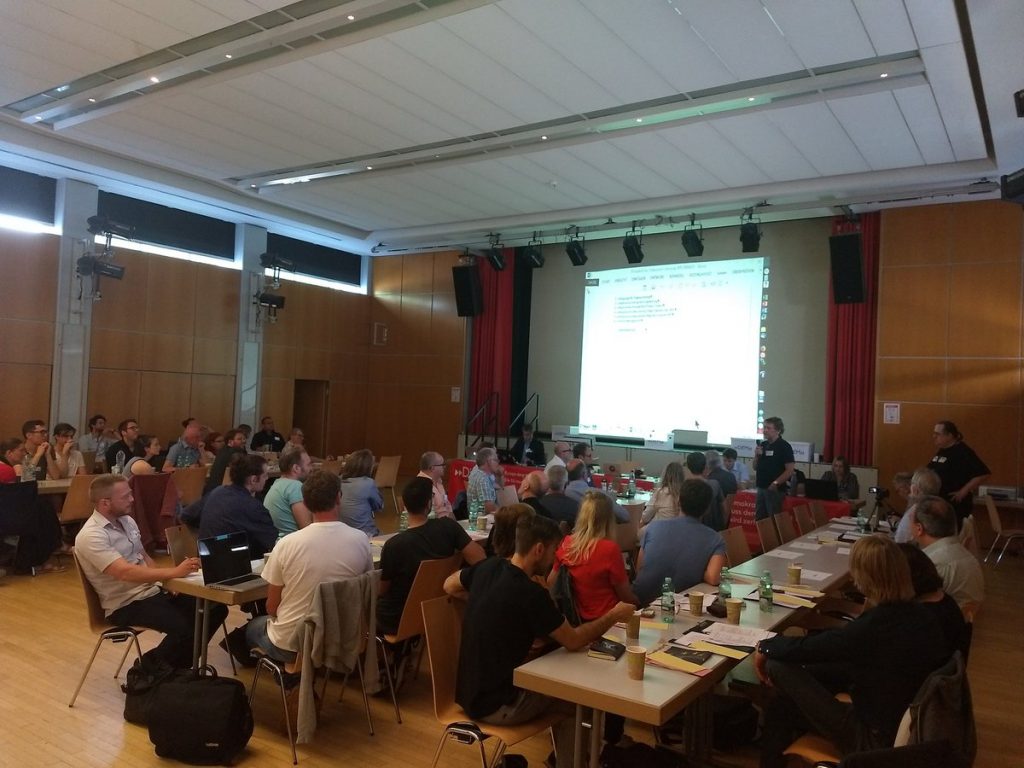
The procedures for the meeting were as follows:
After introducing the chairman and the clerks, the first point was the discussion of the name. In a Europe-wide vote, our members selected the name “Democracy in Europe DiEM25,” with 56.73% of the vote.
The second item on the agenda was the statutes. In addition to an adaptation of the preamble, those present discussed the quota of members of the federal collective in the executive committee. The quota aims to ensure an influence of the movement on the electoral wing. The members of the federal collective are directly elected by all DiEM25 members, while the board can only be elected by members of the German electoral wing.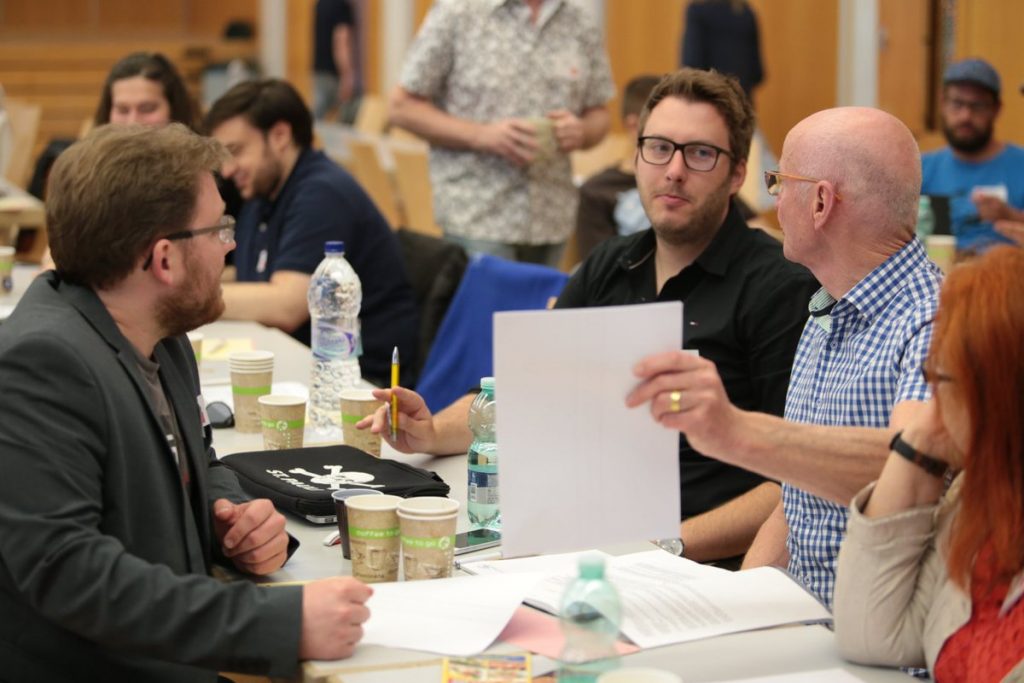 Following a compromise proposal, the majority of those present opted for an indirect quota. This was intended to promote participation by the federal collective within the new board, but the quota should not be a duty. After a short break, a large majority accepted the statute.
Following a compromise proposal, the majority of those present opted for an indirect quota. This was intended to promote participation by the federal collective within the new board, but the quota should not be a duty. After a short break, a large majority accepted the statute.
Thus, the first hurdles for the implementation of the founding meeting were taken. Now the accreditation of the founding members could begin.
In the accreditation, all people who wanted to join the “other political association” had to complete some formalities. Among other things the founding protocol was signed. After the meeting, these documents were to to be submitted to the federal German election officer in order to register the “other political association”.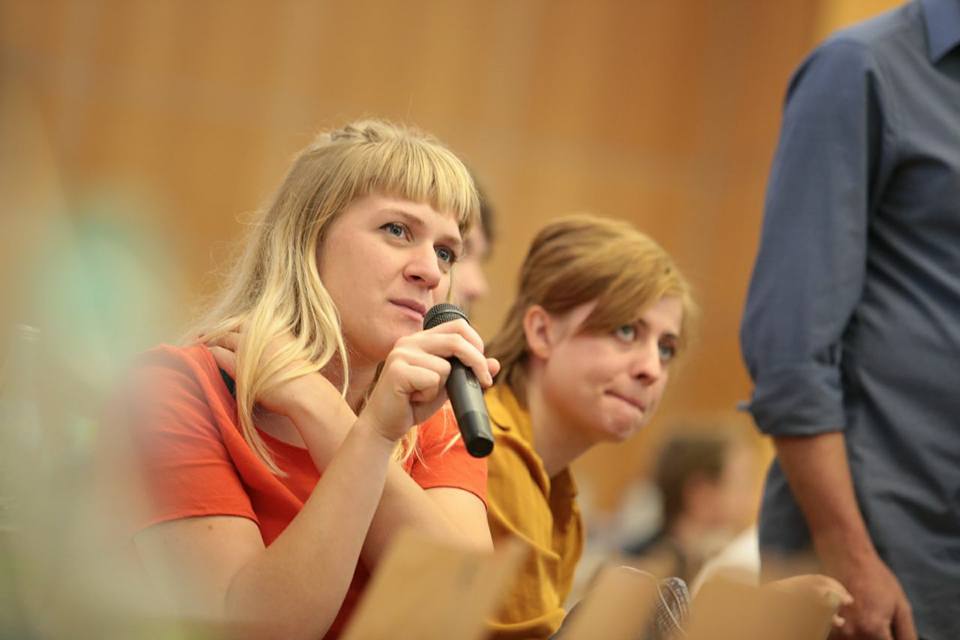 After the formalities, the founding members received their voting cards. Therewith they are members of the German electoral wing, which can compete in the elections for the European Parliament in 2019.
After the formalities, the founding members received their voting cards. Therewith they are members of the German electoral wing, which can compete in the elections for the European Parliament in 2019.
Once all the members had been accredited and the electoral assistants appointed, the meeting turned toward the election of the board, the treasurer and the assessors of the board.
First, the chairman was elected. There were five candidates (one woman and four men). Each of them had three minutes to introduce herself or himself.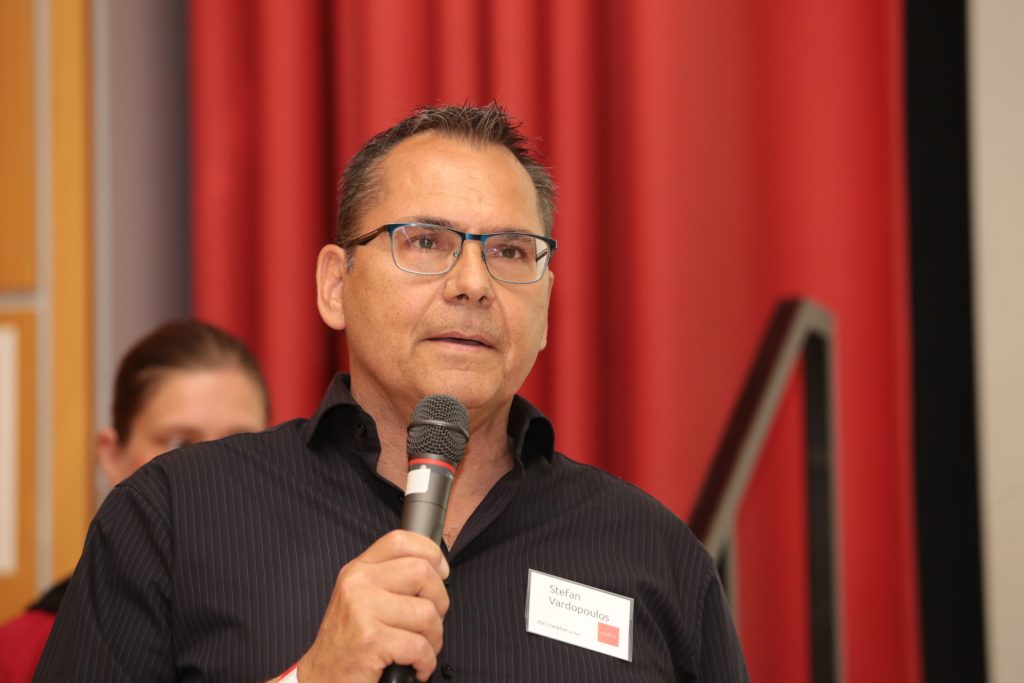 Stefan Vardopoulos, who is also a member of the federal collective, started the introduction. Stefan introduced himself as the son of a German mother and a Greek father, who has always felt European.
Stefan Vardopoulos, who is also a member of the federal collective, started the introduction. Stefan introduced himself as the son of a German mother and a Greek father, who has always felt European.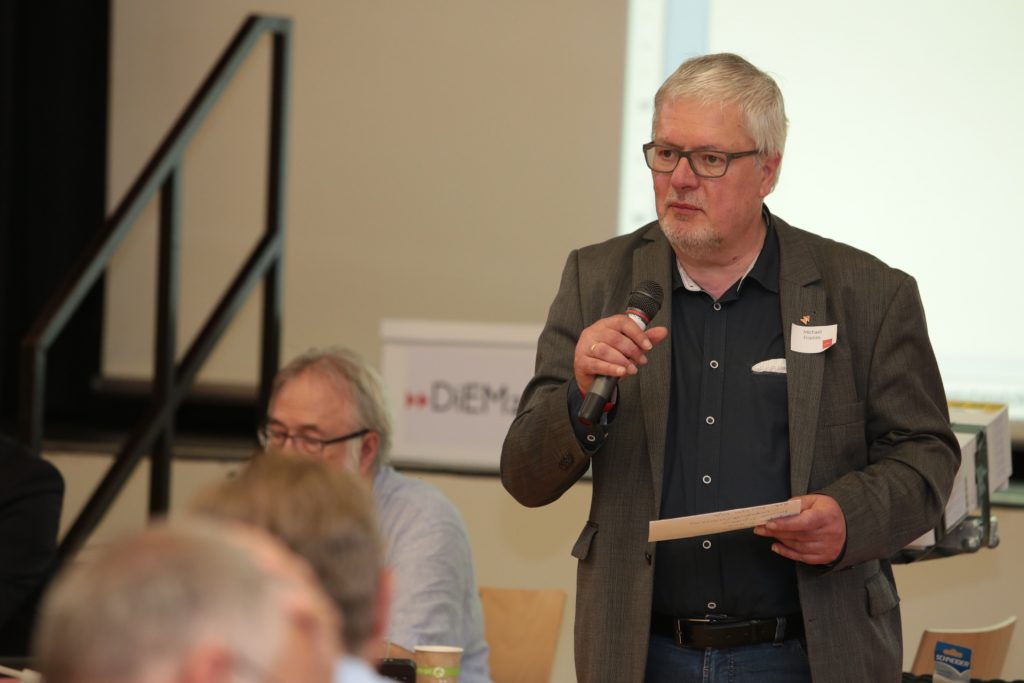 The second was Michael Fromm, who is also a member of the German Federal Collective. Michael is a former trade unionist and former SPD member before he left the party in 1990.
The second was Michael Fromm, who is also a member of the German Federal Collective. Michael is a former trade unionist and former SPD member before he left the party in 1990.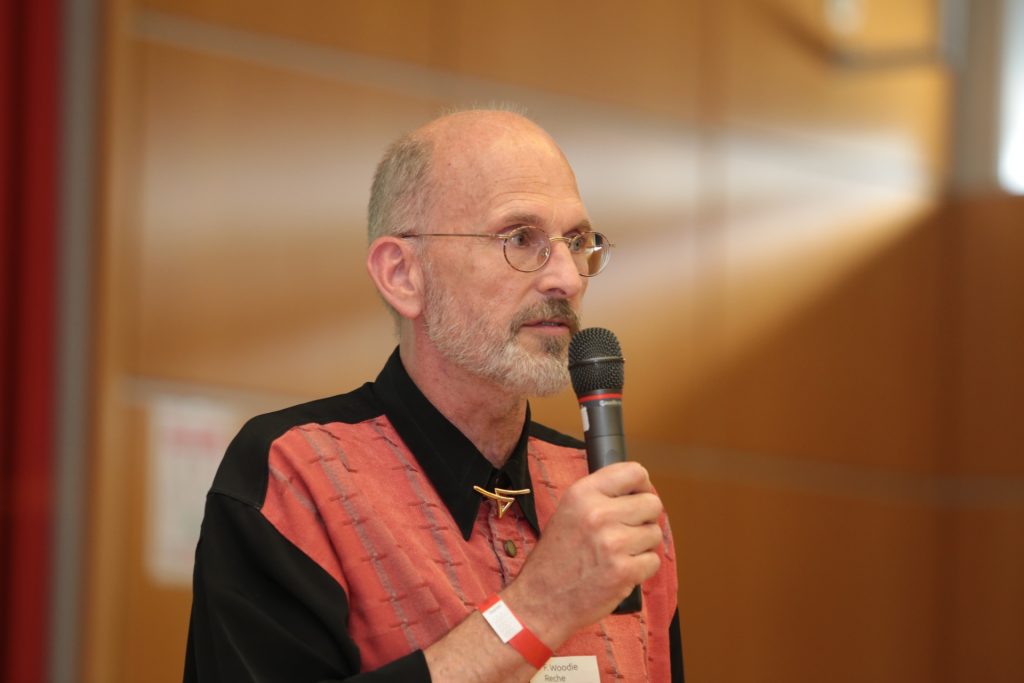
The next candidate was F. Woodie Reche, who is a political newcomer and has always felt part of an extra parliamentary opposition.
The fourth candidate was Jasper Finkeldey. He is a member of the spontaneous collective of DiEM25 (DSC) in Berlin. Furthermore he is involved in the European New Deal cooperation and the organisation of the March for Europe in Berlin.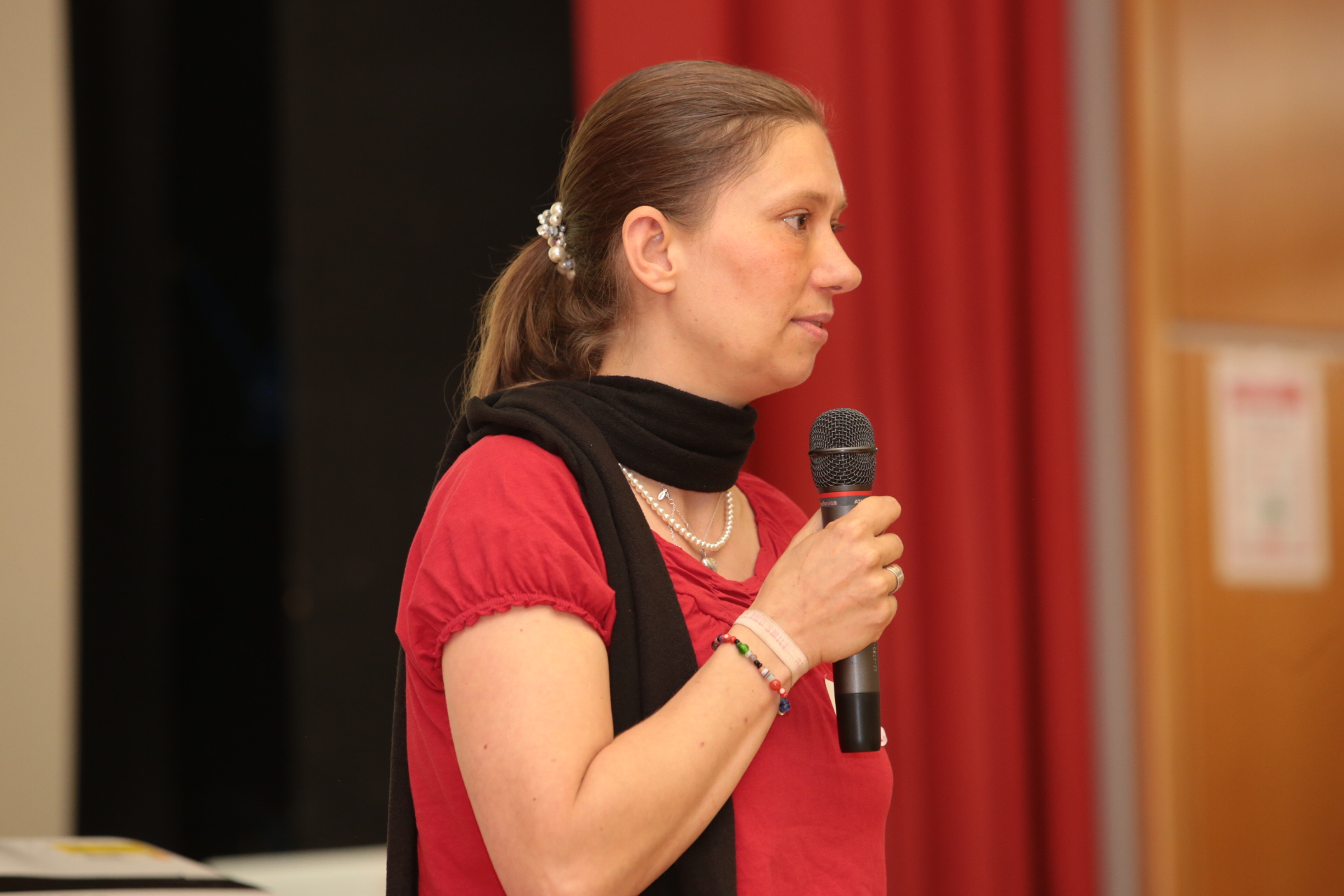 The only woman who was running for the chairmanship of the board is Anja Kühnel. Anja comes from the DSC Munich and emphasises how important it is that also non academics are represented in DiEM25.
The only woman who was running for the chairmanship of the board is Anja Kühnel. Anja comes from the DSC Munich and emphasises how important it is that also non academics are represented in DiEM25.
There were a total of 57 votes cast: 28 votes for Stefan Vardopuolus, 18 votes for Michael Fromm, 8 votes for F. Woodie Reche, 29 votes for Jasper Finkeldey and 25 votes for Anja Kühnel. Jasper Finkeldey therewith won the election of the board by one vote.
He comments on the founding meeting as follows:
“We have set ourselves the task of forging an alliance to give Europe a progressive face and to save it from further disintegration. For too long, the EU has been paralysed by oligarchy and bureaucracy. Democracy in Europe is campaigning for a new deal for Europe and a new constitution. German politics in particular has betrayed the idea of Europe as a community of solidarity. We as the election wing are now exploring possibilities for a broad progressive alliance in Germany and with our European partners.”
Then the next elections for the vice-chair and the treasurer’s office. Stefan Vardopoulos was elected to the vice chairmanship with 31 votes, and Carmen Goeddaeus was elected as treasurer with 34 votes.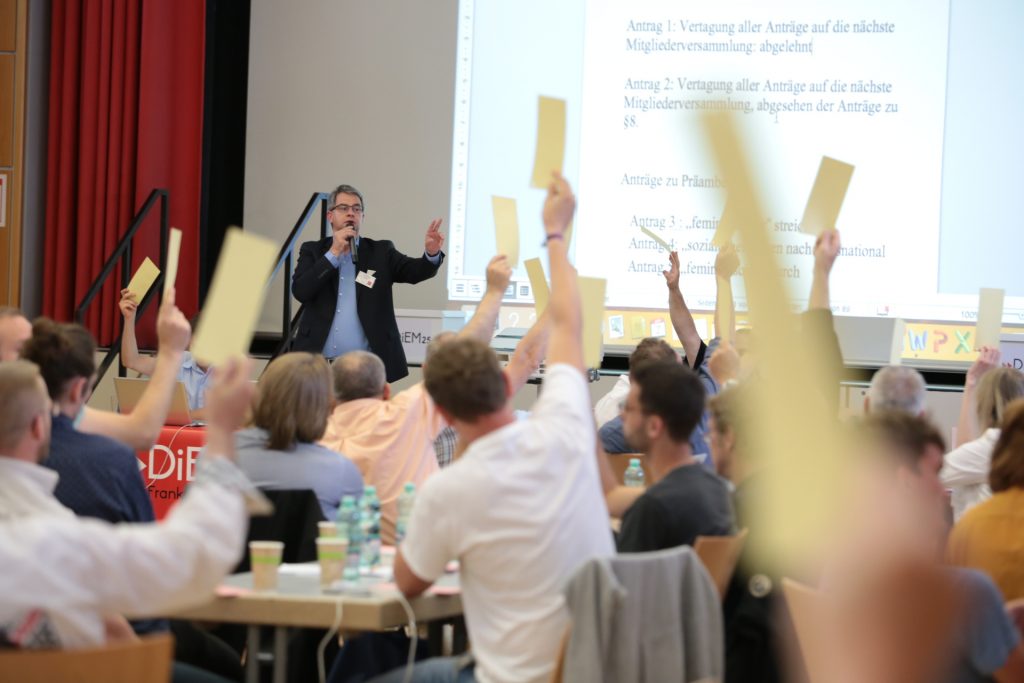
A total of 18 people ran for the position of an assessor of the board. Michael Fromm, Robin Scheben, Knut Bänsch, Evelyn Löwenstein, Julijana Zita, Luisa Barbas, Lorin Brenig, Carmen Goeddddaeus, Jasper Finkeldey, Susanne Helfrich-Vardopoulos, Anja Kühnel, David Schwertgen, Thomas Geiseler, Stefan Vardopuolos and Benjamin Lemke are elected as assessors of the board.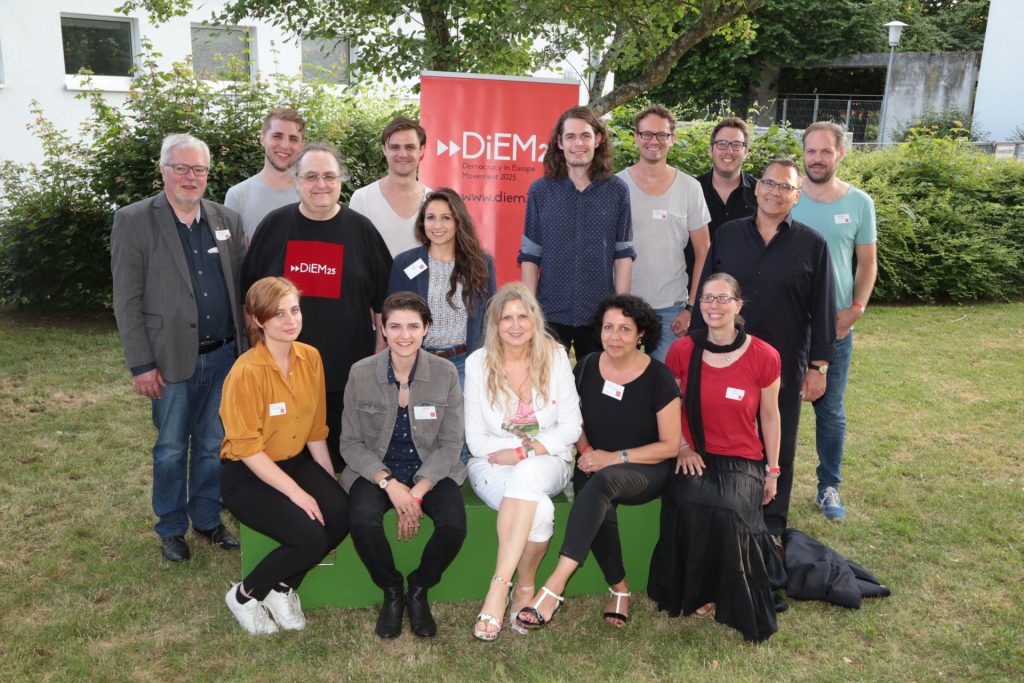
The meeting ended with the determination of the date for the next general meeting.
The next step is now the submission of the necessary documents to the federal German election officer to officially register the “other political association”. Following the successful registration of the “other political association”, there will be a renewed membership decision of all DiEM25 members to decide whether the “other political association” should take part in the 2019 European elections as an independent party.
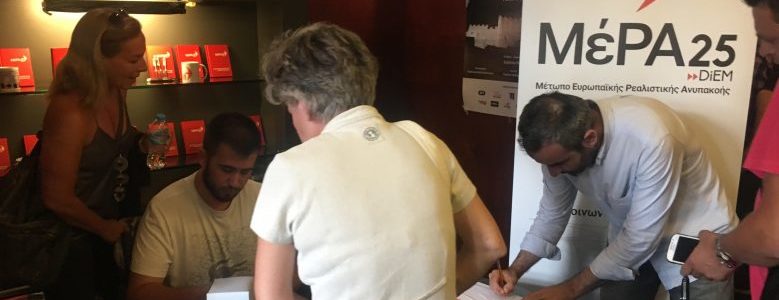
MeRA25 is charging ahead with the development of its political programme
Last week, MeRA25 members gathered to discuss a wide range of policy priorities, from Europe’s Green Transition, Education, Culture, the Healthcare System, Mass Media and Democracy, and Greece in the world.
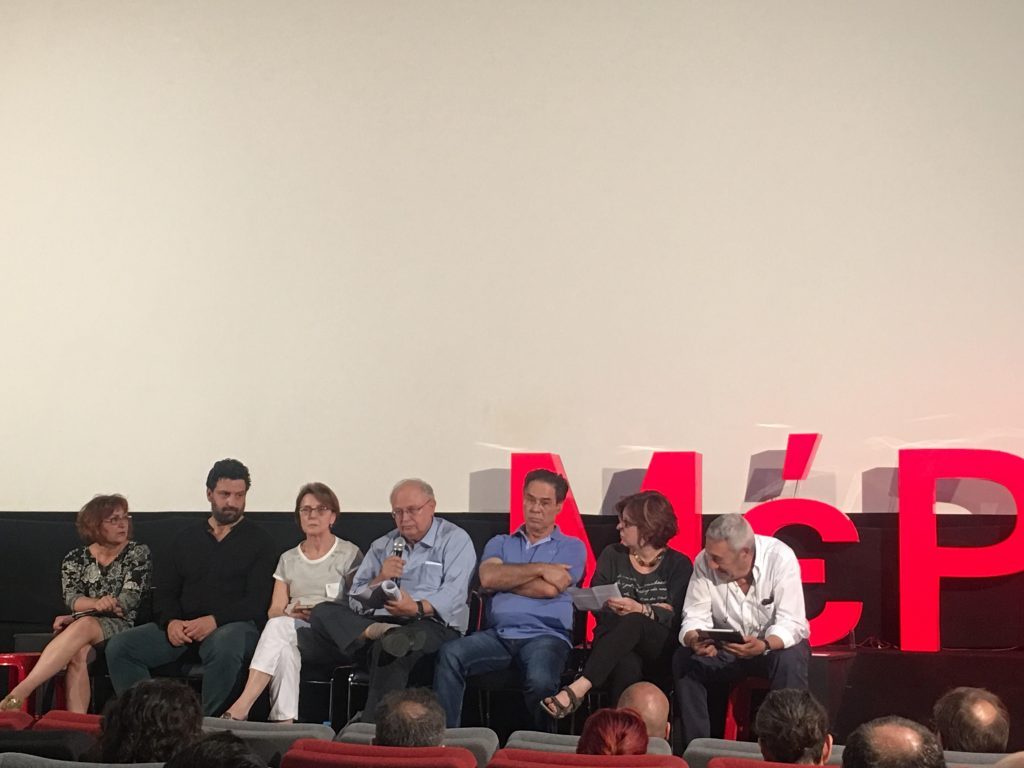 Through this dialogue with the MeRA25 membership, we are developing a diverse, coherent, and comprehensive policy agenda.
Through this dialogue with the MeRA25 membership, we are developing a diverse, coherent, and comprehensive policy agenda.
The Political Secretariat of the party will gather all the incoming proposals from the membership. Please submit your thoughts and proposals on by clicking here.
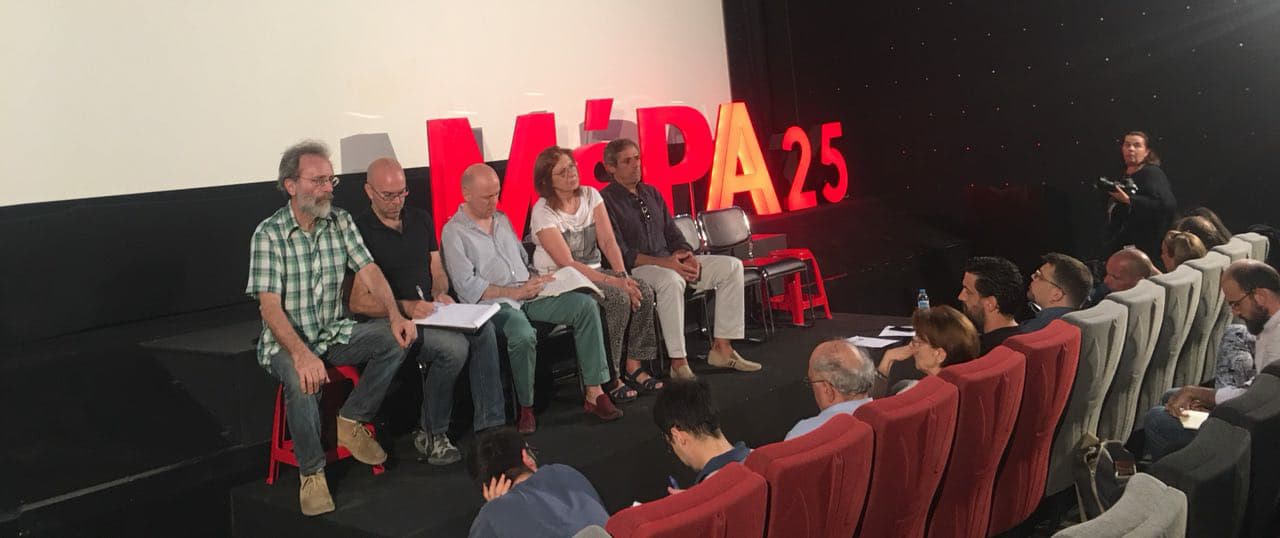
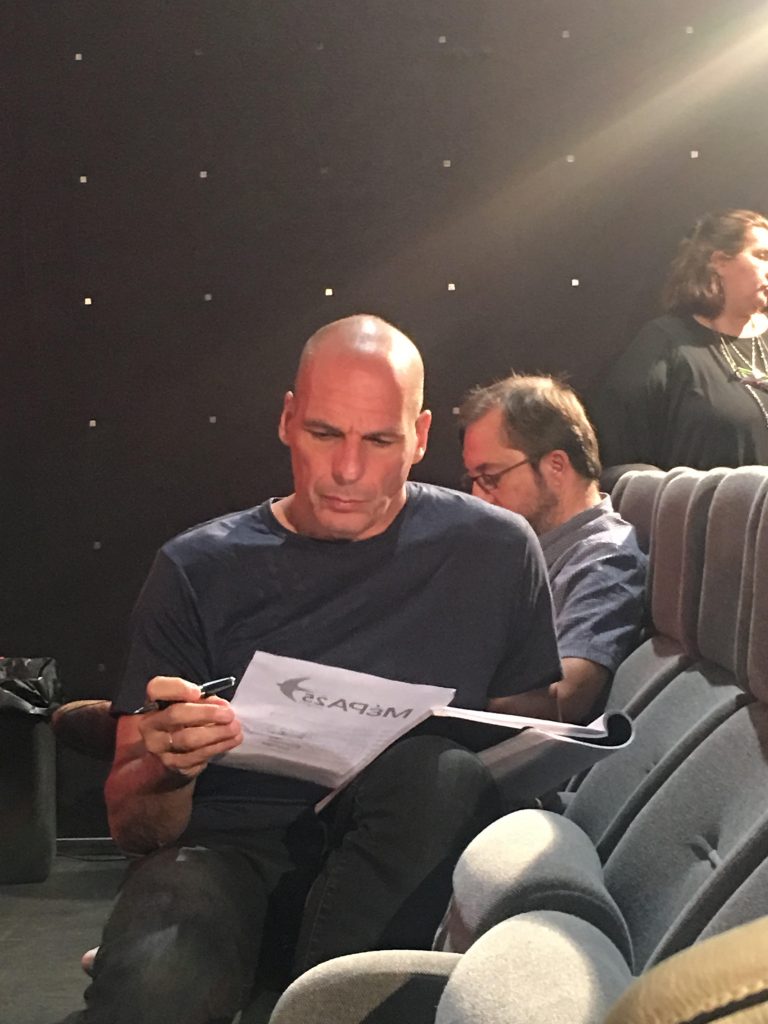
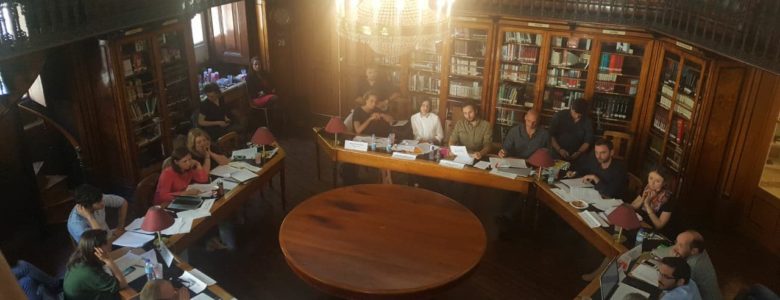
The European Spring is arriving in Paris on the 8th and 9th of June!
The European Spring is arriving in Paris!
After a first meeting in Naples in March and a second in Lisbon in April, DiEM25 and its European political partners will meet in Paris on June 8. You are invited to this 3rd European Spring Meeting!
You can attend the morning and afternoon working sessions, then debate with the personalities attending, and other activists at the early evening public meeting.
Our Coordinating Collective (CC) members, Yanis Varoufakis, Agnieszka Wiśniewska, Paola Pietrandrea and Lorenzo Marsili, as well as representatives of all European Spring partners, will discuss the progressive agenda that we will present to European citizens at the 2019 European Parliament elections.
We will continue on the June 9 with a meeting between the activists of the various European Spring organisations, to collectively build our transnational activism and find concrete ways to democratise European society.
Let us be many to enrich the exchange of our ideas!
June 8, programme
9h30 – 13h00 : European Spring Council meeting on relations with other movements (in English)
15h00-18h00 : European Spring Council meeting on the programme (in English)
18h30-20h00: public meeting, debate between the European Spring members and all activists (multilingual)
Where:
La Bellevilloise
19-21 Rue Boyer, 75020 Paris
Métro: Gambetta
https://www.labellevilloise.com
June 9, programme
15h00 – 16h00 : opening of the day and exchange of experience between the movements
16h00 – 17h00: workshops (4 themes will be chosen collectively the same day)
17h15 – 19h00 : restitution in general assembly, followed by a convivial moment around a buffet
Where:
Association des Étudiants Protestants de Paris.
4, rue Titon, 75011 Paris
https://www.aeppresidence.fr/
Please reply to this email ([email protected]) to confirm your participation for both the 8th and 9th of June.
Activist accommodation contact: [email protected]
Carpe DiEM25!
The National Collective >> DiEM25 France
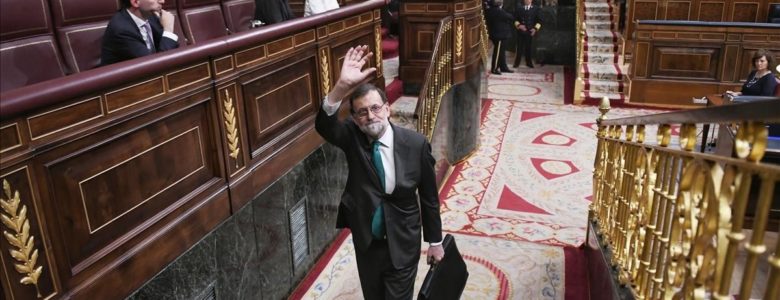
DiEM25 salutes the Spanish parliament’s decision to move past Rajoy to a new era of change
Today’s Spanish parliament decision to put an end to the Popular Party’s administration is the beginning of a new era for the Eurozone’s fourth-largest economy. Spain must seize this opportunity not only to halt the lethal austerity policies that Rajoy’s government had been implementing under the control of the Brussels Establishment, but also to play a key role in repairing and rebuilding our common European project.
While we respect the constitutional process that has allowed for a corrupt and insensitive government to be replaced, we urge Pedro Sánchez’s new administration to promptly convene general elections and allow Spaniards to make their voices heard at the ballot box. Democracy is and must always be the way forward, particularly at such historic moments.
We also congratulate Baltasar Garzón, the Spanish judge who uncovered the institutionalised corruption in the Popular Party which led to the government’s downfall. Garzón has always paid a high price for his work – from prosecuting the likes of Pinochet to leading the defence team of our Advisory Panel member Julian Assange. We salute his principled stance and are happy to be working with him and Actúa, the political organisation he now leads, on building our “European Spring” transnational alliance for next year’s European elections.
With over six thousand members in Spain and growing, last month we activated our Spanish Provisional National Collective — the body that will oversee our activities in the country for the coming months. Its goal: to build up our activist base in Spain and strengthen and further our Progressive Agenda for Europe proposals there. (Here is the proposal voted in that sets the groundwork for our activities in Spain, and here is the list of our members appointed to the Spanish provisional coordinating body.)
As DiEM25 we call on all Spanish political actors, movements and activists, that want to determine which policies Spain should implement to reverse the EU’s current negative slide, to start discussions with us. As ever, our members will decide what role we should play in any forthcoming elections in Spain, but now is the time for all progressive actors to prepare for it.
Photo: Dani Gago

A necessary utopia: open debate on the role of DiEM25 in the event of elections in Italy
Since launching DiEM25 in 2016, we have been saying that a morally and financially bankrupt establishment intent on safeguarding an unjust system would achieve only one result: the growth of a nationalist and xenophobic wave across the continent.
The serious political events now taking place in Italy show, like at no other time, that there is an urgent need for a third option beyond the polarisation between nationalist populism and the undisputed domination of finance.
On this basis, we are now opening a public discussion with all our members on the prospects of DiEM25 in case of early elections in Italy. This discussion will lead to an all member vote that will decide the position of the whole movement.
The Coordinating Collective (CC) and the Italian National Collective (NC) met and shared three options for action in the event of early elections in Italy immediately after the summer:
A) We compete in the Italian elections, but only in the European constituency (outside Italy)
Italian electoral law provides for the vote of Italians abroad in a separate college, in which it is possible to compete without necessarily applying in Italy. This would present an extraordinary opportunity for DiEM25 to set up the first truly large transnational political campaign. We would involve all our members, of whatever nationality, in collecting signatures and in convincing Italians abroad to support us. Finally, it would be a good general test for the 2019 European campaign.
B) We compete fully in the Italian elections
For several months DiEM25 has been working on building a wider lineup in Italy, with an eye on municipal entities. This deployment is not yet ready. However, we think it possible to express opinions on the possibility of opening candidacies for the national level if there were the right conditions, with a final decision to be taken once the framework of the political offer has been clarified.
C) We don’t compete in the Italian elections
In this case we would evaluate whether to support any of the existing parties.
The Coordinating Collective and the Italian National Collective have positively evaluated the first two options, while noting the need for more information for option B. More scepticism has instead been given to option C, since it would entail an abdication of our responsibility as a pro-European anti-establishment force at such an important time for Europe.
To take part in the debate, follow this link to the open discussion in our forum.

LGBT rights are not negotiable: equality and equity now!
May 14 is marked as the international day against homophobia, transphobia and biphobia. Common to all three words, the “phobia”, is the aversion and discrimination based on sexual orientation and/or sexual identity. May 14 therefore marks our common fight for LGBT rights, equity and awareness.
With few exceptions, Europe has a long way to go in its respect for LGBT rights and in its guarantee of LGBT equality. The annual report of ILGA-Europe shows a divided Europe: on average, north-west Europe has developed a very positive ‘social climate’ against LGBT people, but in the south-east, human rights violations remain prevalent.
However, Europe has been making substantial progress. OECD’s report on LGBT inclusiveness shows a significant increase in almost all countries, compared to just a couple decades ago. This would have been good news if all countries were on a positive trajectory. But Greece, the country hit the hardest by neoliberal policies, exhibited a strong decline in homosexuality acceptance rates!
At DiEM25, we believe in equal rights for all people — and we believe that LGBT rights will always remain in jeopardy as long as racism and discrimination are cultivated by austerity and anti-democratic repression. All of these problems are interconnected: we need to fight for holistic, commonly-developed, progressive agendas and reforms throughout Europe — to restore democracy and achieve equity and full equality, irrespective of sexual orientation or sexual identity. Join us!
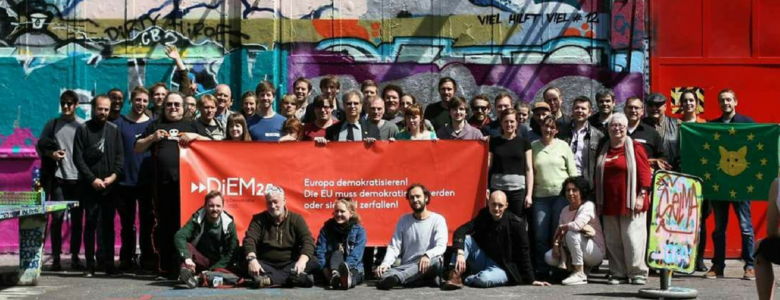
DiEM25 to launch its political party in Germany on June 2
On November 7, 2017, members of our pan-European Spring movement decided to establish ‘electoral wings’ that would allow us to contest elections across Europe. And next week, on June 2, we will be unveiling our German ‘electoral wing’: Over 120 DiEMers will come together in Frankfurt to activate the political party that will enable them to take the German branch of our movement to the 2019 European Parliament elections.
Our ‘electoral wing’ is but another tool in our bid to repair and rebuild our Union by taking our policy proposals to ballot boxes at local, regional, national and European levels. Thus, this electoral effort is “not just another political party“, but another way for us to take our movement’s sound policy instruments in a way for political content and ideals to take part in the arena of European politics.
Why now? On 7 February 2018, the European Parliament rejected a proposal to amend the EU’s electoral law and prevented the introduction of so-called “transnational lists”. However, for the 2019 European elections, DiEM25 will bring a transnational electoral option to the polls thorough “European Spring” – a partnership of progressive political forces from across the continent presenting a common agenda for Europe – including DiEM25’s own ‘electoral wings’, like MeRA25, our political party in Greece.
The upcoming inaugural meeting in Frankfurt on Main aims at accomplishing three important milestones: (i) decide the name of the legal association that will make our German ‘electoral wing’ a reality, and for which numerous proposals have been submitted by the membership and are currently being voted by DiEMers everywhere; (ii) to comply with the legal formalities, and (iii) to agree on the association’s statutes, which are also being voted by DiEM25’s entire membership.
Ultimately, a board responsible for organizing and steering our German ‘electoral wing’ will be elected, so that on 26 May 2019, another DiEM25 voice will play in the European concert.

“Just be fair”: when does journalism undermine its own reputation?
Stefania Maurizi works for the Italian daily La Repubblica as an investigative journalist. She has worked on all the WikiLeaks releases of secret documents, and the Snowden files about Italy. She has recently started a multijurisdictional Freedom of Information Act (FOIA) litigation effort to defend the right of the press to access the full set of documents on the Julian Assange and WikiLeaks case. Six years since Ecuador granted Julian Assange political asylum, a freedom of information act in the UK is shedding light on what was happening behind the scenes during that period. With few records and a great deal of mystery…
Yorgos Boskos (YB): In a speech to the International Journalism Festival in Perugia last April, you outlined the multijurisdictional Freedom of Information Act (FOIA) litigation effort that you have launched to defend the right of the press to have access to the full set of documents on the Julian Assange and WikiLeaks case. What are the outcomes of this procedure so far?
Stefania Maurizi (SM): The reporters covering Assange’s case were just willing to crib from the authorities’ declarations. No media has tried to access the full set of documents in his regard. FOIA litigation is an ongoing procedure in Sweden and UK.
Sweden has a very helpful transparency law when it comes to Freedom of Information, enabling me to get hold of 226 pages of documents for the first time. Most of those documents were not redacted. Thanks to those documents, I learned that the UK authorities looked at this case as ‘special’ in their correspondence with the Swedish prosecutors, and a UK lawyer named Paul Close working for the UK Crown Prosecution Service – the UK Government’s entity which supported the Swedish prosecutors’ work from the very beginning – refers to the Julian Assange case as not “being dealt with as just another extradition request”. I wonder what makes this case special: the documents I have obtained so far don’t explain it.
Julian Assange has never refused to be questioned. He offered to be questioned from the very first moment in many possible ways. Thanks to this FOIA, we have learned that the UK is responsible for contributing to creating the legal and diplomatic mess in the case of Julian Assange, because it was the UK authorities which advised their Swedish colleagues against the only investigative strategy that could have led to a quick closure of the preliminary investigation: questioning Assange in London, rather than extraditing him to Stockholm, as the Swedish prosecutors have always tried to do.
That’s the reason he is still confined in the Ecuadorian Embassy: because the decision to extradite him to Sweden made him seriously concerned about the risk of being extradited to the US, which is still the most serious risk he faces, even if the Swedish investigation was dropped in May 2017. This risk of being extradited to the US is real: Assange’s fears are completely rational. It is encouraging that the FOIA process has produced a number of documents concerning the Assange case, but it is very suspicious that the UK authorities have admitted that they destroyed key emails linked to the case. Why did they destroy crucial emails about an ongoing case? They haven’t provided any serious explanation. I keep litigating the case and I am going to submit further FOIA requests to the US and Australian agencies
This risk of being extradited to the US is real: Assange’s fears are completely rational.
YB: You have worked on all WikiLeaks’ releases of secret documents to date. Did you receive any threats during your investigation of the WikiLeaks story?
SM: I started working on the Wikileaks story back in 2009. At that time, I was working for the Italian magazine l’ Espresso, which focuses on deep reporting and investigation. Both l’ Espresso and la Repubblica have been very helpful and collaborative. This was a wonderful experience and I was provided with full support and the tools to work properly. I have not had threats, but I have been tailed. In these days, it is quite common to be tailed. Every call you dial can be intercepted. I take that for granted. That’s why I don’t use a smartphone any more.
YB: What’s the most remarkable experience you have had working on Wikileaks releases and Snowden files?
SM: Access to information which has basically revealed the ‘invisible power’, the state and the intelligence services that act behind our backs. Unfortunately, the vast majority of people are not aware of these dark corners and don’t realize the existence of the full force of the State against them. Assange, Snowden, and Manning have shed tremendous light on the inner government of the world, notwithstanding.
YB: Why did you decide to go into investigative journalism?
SM: I think that investigative journalism is of crucial importance in the digital era; a powerful form of oversight for our Democracy. Of course, I respect news reporting, but we are completely carpet-bombed by news. There is an increasingly strong need for deep reporting in order to unearth the ‘invisible power’. And I greatly appreciate investigative projects like the Daphne Project: an extremely intelligent project which undoubtedly sends a powerful message, because it says: “they might kill the journalist, but not the stories”. Even if some bastard kills a journalist or a source, the investigation will go ahead in any case.
YB: Can you tell us about the NSA targeting Italy?
SM: They targeted Italy using the Metadata programme, and collecting millions of pieces of data of the Italian people. Our embassies were under surveillance. They intercepted Silvio Berlusconi’s calls.
However, the strange thing is that after all those leaks and revelations our government has done absolutely nothing. According to Italian law, the prosecutors were supposed to investigate this case. Instead, they dropped it.
YB: Do you think that the Metadata programme is still running?
SM: Of course, they carry on as always. Metadata is one of the most important leaks in history. The European Union has done absolutely nothing about this. Metadata has never prevented any kind of terrorist attack. They basically run it not to fight terrorism, but in order to gather information, because information is power.
YB: What’s your opinion of the latest El País editorial on Julian Assange?
SM: I think that the Managing Editor of El País, David Alandete, should avoid very serious accusations against Julian Assange without providing solid facts which support those accusations on Russia. The Spanish daily El País has basically not replied to The Intercept’s story (How Shoddy Reporting and Anti-Russian Propaganda Coerced Ecuador to Silence Julian Assange) by Glenn Greenwald and M.C. McGrath. The El País editorial did not provide solid facts: it just expressed opinions.
YB: Why do you think the majority of the press does not have a liking for Wikileaks?
SM: For a very simple reason; because Wikileaks has the ability to publish everything in any case, compared to traditional newspapers, which have lost control of it. I completely disagree with some colleagues of mine who say that ‘‘Wikileaks does not believe in journalism’’, and undermines its reputation. This is absolutely not true. We should not forget that most of the documents that have been released were in collaboration with media partners.
It is very damaging that the media likes to portray a confrontation between Wikileaks and the United States. This is propaganda, not the big picture. At the governmental level, the Australian Government has done absolutely nothing regarding Julian Assange’s case. I wonder if they have even realized that an Australian citizen is being arbitrarily detained in London just for doing journalism! Wikileaks is an ‘aggressive’ media organization on a mission to fight the ‘invisible power’ behind any government in the world.
YB: Do you think that a Jeremy Corbyn’s government would back Julian Assange?
SM: I hope so. I am not sure whether he would like to fight this case, though. It is such an unpopular case, especially in the UK. He will find himself up against the UK establishment and British Intelligence Services. The current British government has refused to acknowledge the UN Ruling and provide safe passage for Julian Assange. I hope that the next UK government will comply with Opinion No. 54/2015, as adopted by the Working Group on Arbitrary Detention (WGAD), which considers Julian Assange as arbitrarily detained at the Ecuadorian Embassy in London.
YB: According to the Guardian’s latest story, Ecuador spent millions on a spy operation for Julian Assange. An anonymous source had told the newspaper that J.A. hacked into embassy communications. The Guardian provided no evidence for that. Is that shoddy journalism?
SM: The Guardian’s reporters didn’t put forward any solid evidence or credible source. I think it is a matter of very basic “hygiene” to remain skeptical until we have some solid facts. This is true in general, but in particular when it comes to WikiLeaks, because throughout the last nine years I have heard all sorts of things on Julian Assange: unverified rumors and very weird stories.
Anything goes when it comes to depicting Julian Assange and his organisation as unstable people, radical, irresponsible, nut job, creepy, very suspicious guys. Remember what happened back in 2010, when WikiLeaks published the Afghan War Logs and the Pentagon accused Julian Assange and his staff of having blood on their hands? The entire media just parroted what the Pentagon was saying, even when it was crystal clear that the Pentagon had an obvious and gigantic interest in demonising WikiLeaks and smashing its reputation.
How many reporters questioned the Pentagon? Ninety-nine percent of them have just kept printing whatever the Pentagon said without questioning it. Now it’s Russia: once again ninety-nine percent of reporters are a-critically repeating whatever the intelligence agencies say and once again it is very obvious that those intelligence agencies have a huge interest in smashing WikiLeaks, because they perceive it as an existential threat. Printing these unverificable claims a-critically is not journalism. I actually think it is the worst betrayal of journalism.
But of course I understand why this happens: siding with governments and their powerful entities has always been very convenient for your career. If you are a reporter and smash WikiLeaks, you can be sure you will get headlines and opportunities in the media. Whereas finding journalists who have worked seriously on their documents, who have worked seriously on the Assange case, trying to unearth solid and factual information – that is very difficult.How many reporters questioned the Pentagon? Ninety-nine percent of them have just kept printing whatever the Pentagon said without questioning it.
YB: Rafael Correa – in an interview with The Intercept – denounces the treatment of J.A. as torture and defends spy operations to protect Julian Assange. Was Hotel Operation scandalous or designed to protect Assange, as Correa stated?
SM: I think there is little doubt that, with all his problems, president Rafael Correa has tried to protect Julian Assange, and I really admired his decision to give him asylum. That said, it is difficult to say what really happened with this “Operation Hotel”, considering how little we know and how difficult it is to verify any information that was actually collected on Julian Assange, his staff and visitors. As a long-time media partner, I have been one of his frequent visitors, so I have both a personal and professional interest in understanding this.
It would definitely be good to know what happened, because like WikiLeaks or not, this story can prove disquieting: the Guardian reporters claim that they have access to the logs of visitors and to information regarding the purposes of their visits. This information was somehow obtained by a newspaper which, as Greenwald wrote, has a “deeply emotional and personalised feud” with Julian Assange and WikiLeaks.
I don’t know what the Guardian’s reporters really have in their hands and I don’t know what information was actually collected on Julian Assange and his staff and visitors, but unfortunately by publishing this information the Guardian risks opening up a Pandora’s box: someone gathers all sorts of information on a media organisation, its editor, journalists, visitors and then this information ends up in the hands of a media which literally hates them. I am not sure where this will end up. It’s barbaric.
We know that surveillance technology makes it very easy to do large scale spying with little money, so it does not even take state actors to spy on a media organisation on a massive scale and media organisations are certainly vulnerable, because we journalists meet all sorts of people for all sorts of reasons. Today, WikiLeaks gets targeted, but tomorrow it will be la Repubblica or le Monde or the Guardian itself. Who’s next?
YB: Guardian reporters call J.A. a fugitive, alleging in another story that the WikiLeaks founder has become an unwelcome guest in Ecuador’s embassy. Any comment?
SM: I have great respect for the Guardian’s work in general, but it is tragic to see how the Guardian has treated Julian Assange and WikiLeaks. The Guardian procured massive scoops from Julian Assange and WikiLeaks and the Guardian has ended up imitating at least in part the brilliant model pioneered by Julian Assange, by introducing a submission platform that receives leaks from anonymous sources and by establishing media partnerships to publish revelations with a maximum international impact.
I am not saying that the Guardian should spend its days celebrating WikiLeaks. But it should just be fair.
Take the term “fugitive” they used in their latest story on “Operation Hotel”: that is precisely the word the UK government uses to refer to Julian Assange. The Guardian is certainly aware that the UN Working Group on Arbitrary Detention (UNWGAD) established that the UK government is responsible for detaining him arbitrarily since 2010.
It definitely knows that the UK government tried to appeal the UNWGAD’s decision and lost. So in the eyes of international law, Julian Assange is a vulnerable person under arbitrary detention by the UK government: he is not a fugitive.
I don’t think the media should assist powerful governments in whitewashing violations of international law and I don’t think the Guardian should help the UK government to smash WikiLeaks: it should act as a watchdog.
WikiLeaks and Julian Assange are definitely not perfect and I do not agree with everything they do regardless: they certainly have made mistakes and some questionable choices. But as a matter of fact, as a long-time media partner, I have been able to verify that the documents they have published are genuine and in the public interest.
This is what a media organisation does: publishing authentic information in the public interest. They have done very important work by providing crucial documents to the public, so that every lawyer, every journalist, every activist and citizen can access the information freely and take informed decisions.
This work is extremely valuable and, it is a matter of fact that this work has been copied or imitated by many. I don’t think there is any doubt that the powerful entities exposed by WikiLeaks want to destroy it and I don’t think there is any doubt that Julian Assange and his WikiLeaks team face huge legal and extralegal risks. I don’t think I have ever seen another media organisation targeted by the full force of the State, as WikiLeaks is. Media like the Guardian should not assist governments and their powerful entities in smashing WikiLeaks. That’s not what journalism is supposed to do.
This article was originally published in Open Democracy.